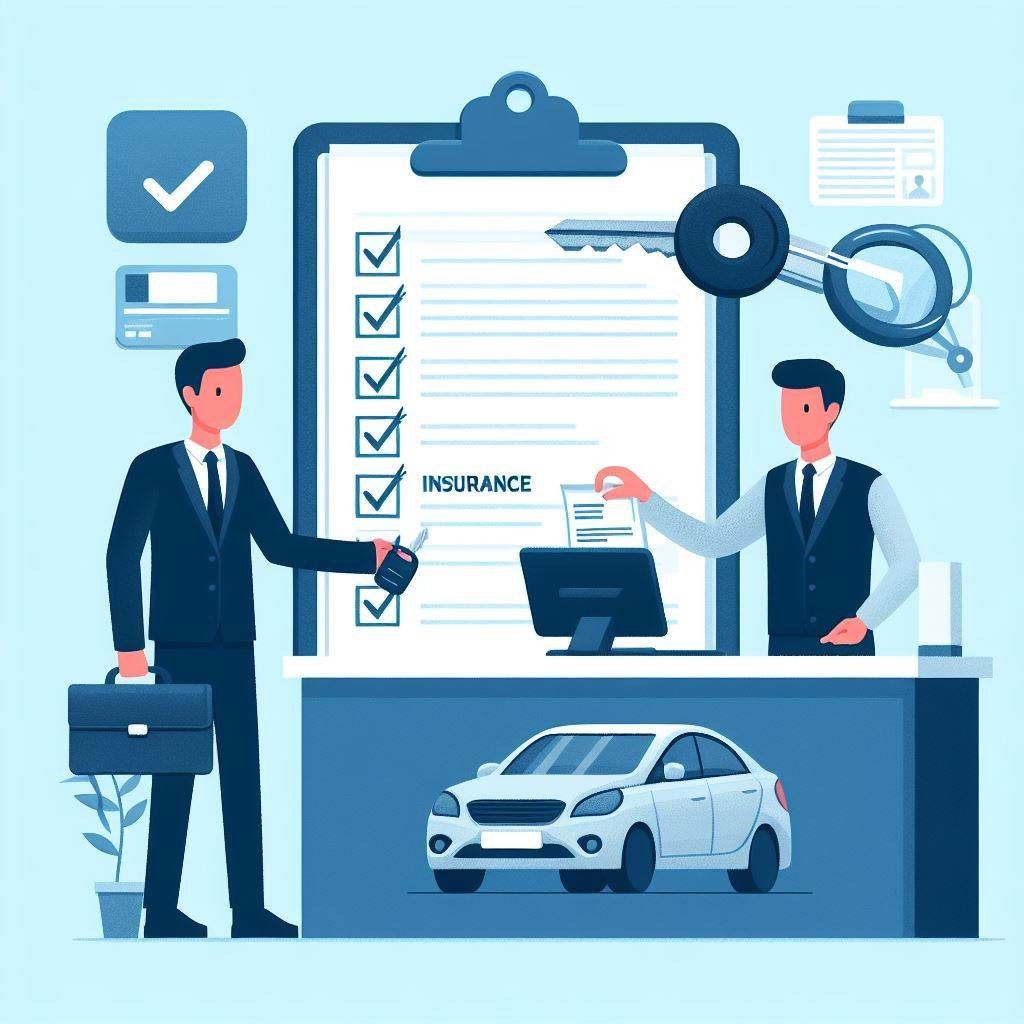
What Do You Need to Rent a Car?
Renting a car can be an exciting and convenient way to explore a new city or travel to different destinations. Whether you're planning a family vacation, a weekend getaway, or a business trip, having a reliable mode of transportation can enhance your travel experience. However, before you embark on your car rental journey, it's essential to know what you need to rent a car. Understanding the requirements and being prepared can save you time, money, and potential frustrations.
Go To: Rent Car Oman
When it comes to renting a car, there are certain requirements that you need to fulfill to be eligible. This article aims to guide you through the process and provide valuable insights into what you need to rent a car. By familiarizing yourself with the requirements, you can ensure a smooth and hassle-free car rental experience.
Go To: Rent Car Muscat
Legal Driving Age
One of the primary requirements for renting a car is meeting the minimum legal driving age. The age requirements can vary from country to country, and even within regions. In most countries, the minimum age to rent a car is 21, although some rental companies may require drivers to be at least 25 years old. It's essential to check the specific age limits of the rental company you choose to avoid any surprises.
Drivers under a certain age, typically under 25, may also face additional fees known as "young driver surcharges." These fees compensate for the higher risk associated with younger drivers. It's crucial to factor in these additional costs when budgeting for your car rental.
Driver's License
To rent a car, you must possess a valid driver's license. This license should be issued by the country of your residence and be recognized in the country where you plan to rent the car. In some cases, an international driver's license may be accepted, especially if you're traveling abroad.
It's important to note that rental companies often require a clean driving record. Traffic violations, accidents, or a history of reckless driving may result in the denial of rental services. Ensure your driver's license is up to date and free from any major infractions.
Credit Card Requirement
Most car rental companies require a credit card for the rental process. The credit card is usually used to secure the rental reservation and cover any additional fees or charges that may arise during the rental period. This authorization on your credit card acts as a security deposit.
Using a debit card or cash for car rentals can be more challenging. Some rental companies accept debit cards but may place a hold on certain funds in your bank account. However, this may vary from company to company, and it's crucial to check their specific policies. Cash payments, on the other hand, are rarely accepted.
If you don't have a credit card, some rental companies offer alternatives such as pre-paid reservations or cash rentals. However, these options often require additional verification and may be subject to stricter terms and conditions.
Insurance Coverage
Having insurance coverage is essential when renting a car to protect yourself and the rental vehicle from potential accidents or damages. Most rental companies offer various insurance options, including Collision Damage Waiver (CDW), Loss Damage Waiver (LDW), Personal Accident Insurance (PAI), and Supplemental Liability Insurance (SLI).
It's important to carefully review the insurance options provided by the rental company and understand the coverage they offer. While insurance can increase the overall cost of your rental, it provides peace of mind and financial protection in case of an incident.
Additional Driver
If you plan to share the driving responsibilities with someone else, you may need to add an additional driver to the rental agreement. Each rental company has its own policies and fees associated with adding extra drivers.
When selecting an additional driver, it's essential to consider their age, driving record, and whether they meet the rental company's requirements. Some companies may require additional drivers to be present at the time of pickup and provide their driver's license.
Fuel Policy
Car rental companies often have different fuel policies for their rentals. The most common policies are "full-to-full" and "prepaid fuel" options.
The "full-to-full" policy requires you to return the car with a full tank of fuel, just like when you received it. This policy ensures that you only pay for the fuel you use during the rental period. On the other hand, the "prepaid fuel" option allows you to prepay for a full tank of fuel at a premium price and return the car with an empty tank.
Understanding the fuel policy is crucial to avoid unnecessary charges. If you choose the "prepaid fuel" option, make sure you use all the fuel you paid for to maximize your investment.
Rental Duration and Mileage Limitations
When renting a car, you'll need to specify the duration of your rental period. Rental companies typically offer various options, including daily, weekly, and monthly rates. It's important to choose the duration that best suits your needs and budget.
Additionally, many rental companies impose mileage limitations, especially for longer rental periods. These limitations define the maximum number of miles or kilometers you can drive during the rental period without incurring additional charges. If you anticipate exceeding the mileage limit, it's important to discuss this with the rental company and understand the associated costs.
Security Deposit
A security deposit is a common requirement when renting a car. This deposit acts as a form of insurance for the rental company in case of any damages, violations, or unpaid fees. The deposit amount is typically pre-authorized on your credit card and temporarily held during the rental period.
To ensure a smooth security deposit refund process, make sure to return the car in the condition specified in the rental agreement. Avoid any violations or damages that may result in deductions from the security deposit.
Additional Fees and Charges
In addition to the rental cost, there might be additional fees or charges associated with your car rental. Popular examples include airport fees, which are often incurred when renting a car from an airport location, and additional driver fees, as discussed earlier.
Other potential fees to be aware of include fees for picking up or dropping off the car outside of regular business hours, fees for GPS or child seat rentals, and fees for exceeding any rental restrictions or limitations.
To avoid unexpected charges, carefully review the terms and conditions of your rental agreement and ask the rental company for clarification if needed.
Car Return Requirements
Returning a rented car can be a straightforward process if you understand the requirements set by the rental company. Typically, you'll be required to return the car on the agreed-upon date and time, usually with a full tank of fuel as mentioned earlier.
Ensure you return the car in the same condition you received it, both internally and externally. Inspect the vehicle thoroughly before returning it, noting any damages or issues to avoid being held responsible for pre-existing problems.
Failure to meet the return requirements, such as returning the car late or with damages, may result in penalties or additional charges. Familiarize yourself with the return policies and communicate any change of plans to the rental company.
Comparison of Rental Companies
It's always a good idea to compare different car rental companies before making a final decision. Consider factors such as pricing, customer service, vehicle selection, and additional benefits or perks offered by each company.
Take advantage of online booking platforms and review websites to gather information and read customer reviews. This research can help you find the best rental company that meets your specific needs and provides excellent service.
Renting a Car Abroad
Renting a car in a foreign country may involve additional considerations. Different countries have varying driving rules, road signs, and cultural norms. Language barriers can also pose a challenge when communicating with rental company staff.
If you plan to rent a car abroad, it's essential to familiarize yourself with the local driving regulations. Research the specific requirements, such as international driving permits, and educate yourself on local traffic laws to ensure a safe and legal rental experience.
Tips for a Smooth Car Rental Experience
To ensure a smooth and stress-free car rental experience, consider the following tips:
Make a reservation in advance to secure the best rates and availability.
Inspect the car thoroughly before accepting it and document any damages.
Familiarize yourself with the rental agreement, particularly the terms and conditions.
Communicate any changes or concerns to the rental company promptly.
Drive safely and responsibly during the rental period.
Keep all relevant documents, including the rental agreement and insurance information, easily accessible.
Return the car in the same condition, following the return requirements provided by the rental company.
By following these tips, you can maximize your car rental experience and minimize any potential issues or complications.
Conclusion
Renting a car can offer unparalleled convenience and flexibility for your travel needs. However, knowing what you need to rent a car is crucial to ensure a seamless and rewarding experience. From meeting the legal driving age to understanding insurance coverage and return requirements, each requirement plays a significant role in the overall rental process.
By familiarizing yourself with the outlined requirements and tips provided in this article, you can confidently rent a car and embark on your journey with peace of mind, knowing you are well-prepared and informed.
FAQs
Can I rent a car if I'm under 25 years old?
While it is generally possible to rent a car if you're under 25, most rental companies impose "young driver surcharges" for drivers under a certain age, typically under 25. These additional fees compensate for the higher risk associated with younger drivers.
Can I rent a car without a credit card?
Most rental companies require a credit card to secure the reservation and cover any additional fees or charges. However, some companies offer alternatives such as prepaid reservations or cash rentals for individuals without a credit card. It's essential to check the specific policies of the rental company you choose.
What should I do if the rental car gets damaged during my rental period?
In case of damage, it's important to inform the rental company immediately. Follow their instructions and provide all necessary documentation, such as a police report if applicable. Depending on the insurance coverage and the circumstances of the damage, you may be responsible for covering all or part of the repair costs.
Can I rent a car in one country and return it in another?
Some rental companies offer the option to pick up a car in one location and return it in another country or city. This service is often subject to availability and additional fees. It's crucial to discuss your plans with the rental company in advance and check their policies regarding cross-border rentals.
Is it necessary to inspect the rental car before accepting it?
Inspecting the rental car thoroughly before accepting it is highly recommended. Take note of any damages, scratches, or issues, and bring them to the attention of the rental company. This documentation can protect you from being held responsible for pre-existing damages when returning the car.




